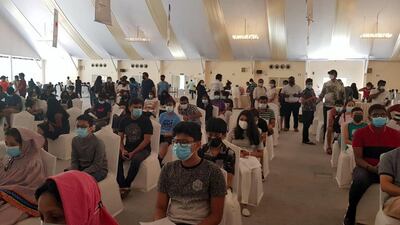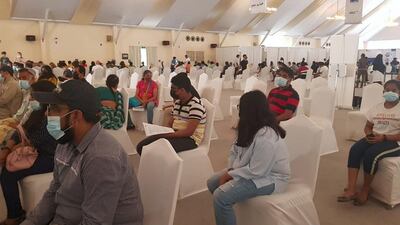Demands on schools increased during the Covid-19 pandemic with parents looking for a focus on structured well-being provisions, rigorous distance learning, and health and safety protocols, an international conference heard.
Parents are now deciding which schools to send their children to based on these services and the school’s ability to respond to a crisis, in addition to the more common education-related factors, a study by ISC Research, an educational data provider in the UK said.
On Thursday, ISC Research organised a virtual conference addressing the disruption and transformation of international education due the pandemic.
During the event, teachers and education experts discussed the pandemic-induced crisis in the global education market.
Education experts shared advice for schools on attracting pupils in an increasingly competitive market.
David Harkin, chief executive of 8billionideas, an online learning service, urged schools to make retaining pupils a higher priority than enrolling children.
“Parents' demands will continue to change. We have seen industries destroyed and some created in the last 16 months,” said Mr Harkin.
“Show your parents that you are going above and beyond.
“Think about every part of the pupil and parent's journey.
“Make retention a much higher priority. We always talk about getting pupils into the school but we don't hear of retention strategies.”
Mental health and well-being have been high on the agenda for schools in the UAE throughout the most recent school year.
Gems Legacy School launched a mental health curriculum for pupils in grades 3 to 6 in April this year, while mental health and well-being studies will be part of the curriculum when Brighton College Dubai launches its sixth form in September.
As part of the Brighton College programme, teenagers will be taught about food and nutrition, exercise, communication, leadership, resilience and positive relationships.
Alan Williamson, chief executive of Taaleem, which runs 13 schools in the Emirates, said parents and pupils are “looking for security".
“Schools should also offer a clear USP in a very competitive market,” said Mr Williamson.
“We looked after our staff, especially our teachers. They stayed with Taaleem and unlike other schools, we have an average departure of only 15 per cent and 10 per cent in the British Schools. This is amazing given the pandemic.”
Tim Barker, business development director at English UK, the national association of English language centres in the UK, said schools needed to listen to pupils and not focus only on teaching them.
“We need to listen to what pupils have to say. The young people at our school will tell you what's important to them,” said Mr Barker.
He said schools had to be willing to push back against parents.
“Sometimes young people need space to form their own bonds and craft their own spaces while parents may want hands-on attention all the time,” he said.
Most school campuses across the world closed for face-to-face learning around March 2020, with some schools reopening, either fully or for online or blended learning, in late summer, while others reopened for the new 2020-2021 academic year.

















